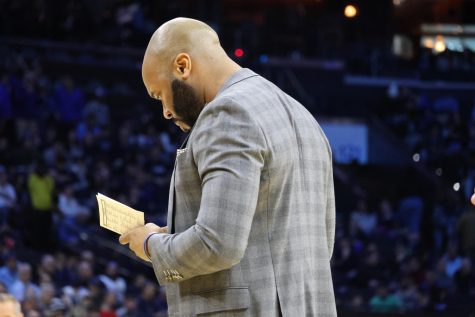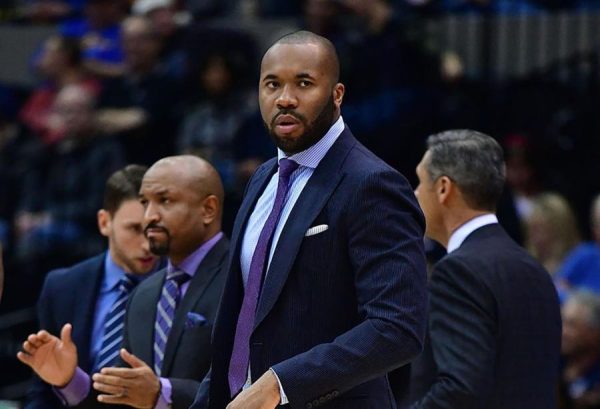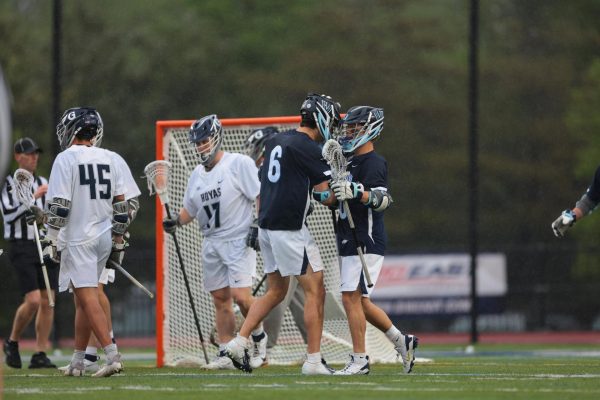Scandal rocks Euro soccer
February 10, 2010
A few days prior to his team’s biggest match of the season against their most hated rivals, Todor Batkov, the owner of the Bulgarian football club Levski Sofia, received a fax from Russian club team Rubin Kazan asking for the transfer of Levski’s four best players. So, on Sept. 20, 2009, when Zhivko Milanov, Ze Soares, Darko Tasevski and Usef Rabeh traveled to Moscow to meet with “representatives” of Rubin Kazan, Levski lost to CSKA Sofia, 0-2. Despite passing physicals, the transfer never happened and the four players returned back to Levski. Batkov claims he was cheated.
Batkov said that as he continued to dig into the fake transfer, he received threatening phone calls from Russia demanding that he stop.
Until recently, Batkov appeared to make a strong case, unfortunately knowing that he has been victimized by an incredibly well executed plan in an attempt to make a large sum of money on illegal bets. The investigation should be headed in one direction and set about trying to determine the beginners of the fake fax.
But now the story appears less straightforward than simply one criminal organization set out to make money. The transfer period ended Sept. 20, which should have disabled the players from flying to Moscow. Kazan, who won the Russian title last year, did not need the players, or even want them, as the team later stated. And the person Batkov set up the transfer with was under a fake name. It makes little sense for a professional club team, and a well-known lawyer, to be so easily conned.
As parts of the story begin to leak out, the case becomes murkier without revealing the true cause, only revealing how damaged and corrupt European soccer has become. Aside from the “Kazan Affair,” as the fake transfer scandal has become known as, UEFA, Europe’s governing body for soccer, has launched a full-scale investigation into a continent-wide scandal surrounding match fixings and illegal betting.
The finality of the investigation, if it ever concludes, will reveal how deeply organized crime has attached itself to the multi-billion dollar sport of European soccer. As of now, numerous countries appear involved and countless matches seem manipulated. And the case continues to grow as more coaches, players and referees become linked. Criminals have mostly immersed themselves in second and third tier matches since these matches remain hidden from the national spotlight and are filled with players eager for more money. But a few Champions League matches, the most prestigious club team tournament in Europe, have also surfaced as fixed.
The absurdity of the “Kazan Affair” and how idiotic it seems for Batkov to send his players to Russia before the most important game of the season makes this story pathetically hilarious. But because other scandals similar to this one have surfaced, the story becomes a sad and unfortunate point in the line of endless criminality.
In recent years, a very serious scandal surfaced involving Mafiosi attempting to buy football club Lazio (Rome) through extortion and money laundering. The Italian Mafia remains a seemingly impenetrable problem, especially the Camorra in Naples, known for its extreme violence, such as its use of bombs in trying to get the current Lazio club owner to sell his share. The silliness of the “Kazan Affair” wears off immediately when considered in the big picture of sports’ organized crime.
The situation becomes much more relevant when considered in light of the still recent NBA gambling scandal. No one can forget how easily Tim Donaghy manipulated the outcome of basketball games. In 2007, the scandal broke that Donaghy fixed numerous games for betting purposes, and every now and then new information leaks about who and how many were involved.
This scandal is not merely a bump in an otherwise clear road, but rather an offense caught up in the world wide net of organized criminality. The investigations into the NBA referee scandal have linked Donaghy with broader criminal organizations and proven how easy a referee can decide the outcome of a game.
Just as the NBA has worked extensively to eliminate any other possible situations, UEFA needs to continue to work hard to prevent this ever-present problem. Then, all anyone can do is wait for it all to cool down.
After Sept. 20, 2009, Levski went on to lose eight straight games, not scoring in six of them. The team has had five coaches in the past year and a half, and Batkov remains as president.
———————-
Daniel Madden is a junior classics major from Cincinnati, Ohio. He can be reached at [email protected].












